If you’re thinking about making the switch from executive to consultant, there are important personal financial planning strategies, in addition to usual legal and accounting matters involved with setting up a new business, that need priority consideration.
Perhaps the most obvious is knowing how to efficiently extract wealth from your consultancy both for day-to-day lifestyle expenses and growing your long-term wealth.
In the early stages of making the switch from executive to a consultant, cashflow can be tight. Even so, it’s important to pay yourself from the get-go, and that includes contributing to super.
Salary & Superannuation
The Association of Superannuation Funds Australia (ASFA) conducted *research a couple of years ago confirmed what has long been suspected – self-employed people generally have low superannuation balances. However, it also revealed that a shockingly high 20% of business owners have no superannuation at all.
Financial planning wise, your consultancy goals should include maximising your personal take home pay which involves combining your saving approach with tax efficiencies.
For example, salary sacrificing up to $27,500 per year has numerous benefits including reducing the amount of your personal income tax payable. Then, once in your super fund it qualifies for a low 15% tax rate which is considerably lower than your personal tax rate which can be as much as a 45% (plus 2% Medicare Levy). And of course, any contribution to super will boost your balance and future retirement nest egg.
Asset protection
Protecting your wealth is important and proactively implementing asset protection measures is important. This is where your wealth strategy crosses over with legal matters. Asset protection usually involves establishing a Trust and/or organising your affairs so that personal assets such as your family home is held in the name of your spouse or someone else who has no legal responsibility to your business. You can learn more about legal matters here in an article by Lawyer, Robert Lamb.
Personal Risk Strategy
Business owners are usually quick to implement common business insurances including professional indemnity and public liability insurance, cover for their premises and work vehicles but often pay little attention to their own personal risk situation.
Lack of time and perceived expense, often detracts from seeking qualified personal risk insurance advice. In my experience, there are no short cuts when preparing a personal risk strategy that provide the financial safeguard necessary when you’re unable to work.
For consultancy partnerships, buy-sell arrangements are a further consideration. A lump sum payout from an insurance policy is a common funding source should a trigger event, such as death or disability, activate the requirement for a partner to be paid out and leave the consultancy.
Succession and Estate Planning
Even though you may be at the beginning of your self-employed consulting career, succession and estate planning enables you to protect your business assets, personal assets and wealth.
Each are complex matters that require collaborative advice for implementing legal structures and tax strategies for effectively exiting your consultancy when you sell or should you pass away.
Wills, Powers of Attorney and a properly constructed Estate Plan for holding and distributing assets aims to establish your requirements and wishes for executing your financial legacy.
Leaving your affairs intestate (without a Will) should never be an option. A Will and estate plan for matters not covered by your Will, ensures clarity for beneficiaries who must manager your affairs in a time of grief and duress.
Next steps
When you are on the verge of a life changing event such as making the shift from a highly salaried executive position to a self-employed consultant, there’s a lot to consider.
There are many reasons why executives become self-employed and having control to follow your professional goals, prosper personally and enjoy the benefits of self-made wealth are among the most common.
But before you do (or if you’ve already made the leap) may I invite you to contact me for a discussion about financial planning, and in particular how to extract wealth from your consultancy to make the most of your opportunities for achieving professional and personal success.
Please contact James Marshall on +61 (0) 7 3007 2080 or email contact@executivestrategies.com.au
To learn more about James, visit this link.
Executive Strategies is a specialised information hub for executives and senior managers who may have founded their own business or who work for growing private, ASX listed companies or government businesses. Its purpose is to provide access to specialist advisers and information that addresses the often-complex issues affecting their personal prosperity.
Stratus Financial Group and its advisers are Authorised Representatives of Fortnum Private Wealth ABN 54 139 889 535 AFSL 357306. This advice is general and does not take into account your objectives, financial situation or needs. You should not act on it without first obtaining professional financial advice specific to your circumstances.
*Please note: For advice and services relating to this matter that are not offered under the Fortnum Private Wealth AFSL, in accordance with our collaborative advice model, when required, such matters are referred to appropriately qualified professionals.








